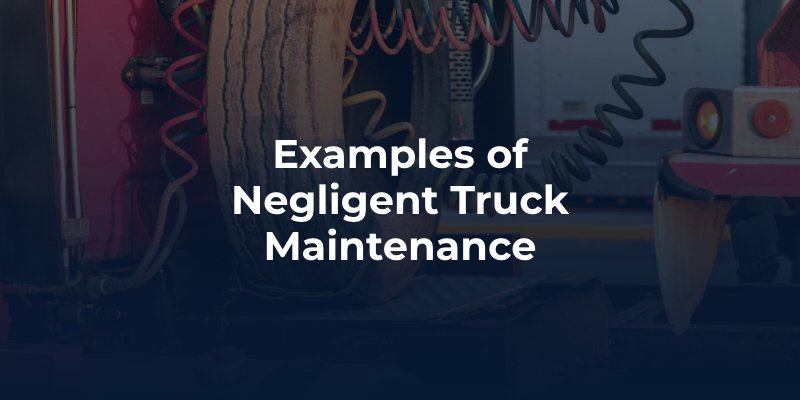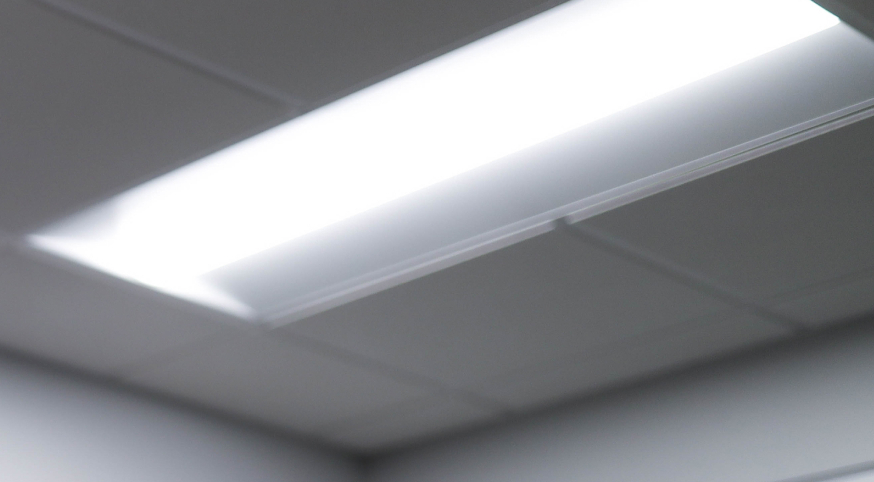Truck accidents are often among the most devastating crashes on our roads, sometimes leaving behind severe injuries, death, and lasting damage. Big rigs and commercial vehicles must be in top condition because even small mechanical problems can have huge consequences when these vehicles are moving at highway speeds. Understanding more about negligent maintenance accidents is helpful for anyone who has been injured as a result.

What is Negligent Maintenance in Trucking?
Negligent maintenance in trucking happens when trucks aren’t cared for as the law or basic safety requires. This means skipping regular checks, repairs, or ignoring issues that should be fixed before a truck goes back on the road.
Common examples of negligent maintenance include:
- Doing only quick or surface-level inspections instead of thorough, regular checks
- Failing to replace cracked or dirty windshields that block the driver’s view
- Ignoring or removing safety features like mirrors, reflectors, or underride guards
- Overlooking signs of suspension or axle trouble that can affect a truck’s balance and handling
- Skipping needed oil changes, fluid refills, or filter replacements that keep the truck running safely
When these issues are ignored, it’s not just the truck that’s at risk. Drivers, passengers, and everyone else on the road can pay the price for someone else’s neglect.
Your Case Will Get
The Attention It Deserves

FMCSA Trucking Maintenance Rules
Keeping commercial trucks in good working order is required by law across the United States. The Federal Motor Carrier Safety Administration (FMCSA) sets national rules for how trucks must be maintained and checked for safety. These regulations are designed to prevent mechanical problems that could lead to serious or deadly crashes.
Under these rules, trucking companies and drivers must carry out regular inspections of the vehicle.
5.2 Inspection, Repair, and Maintenance (Part 396)
Each motor carrier and intermodal equipment provider must systematically inspect, repair, and maintain all commercial motor vehicles (CMVs) under its control. Every employee of a carrier that is directly involved with the inspection and upkeep of vehicles must comply with the rules and regulations of 49 CFR 396.
Parts and accessories shall be in safe and proper operating condition at all times. These include those specified in 49 CFR 393 and any additional parts and accessories that may affect safety of operation, including but not limited to, frame and frame assemblies, suspension systems, axles and attaching parts, wheels and rims, and steering systems. Pushout windows, emergency doors, and emergency door marking lights in buses shall be inspected at least every 90 days.
This means checking things like brakes, tires, lights, and other equipment each day the truck is used. Any problems found must be fixed right away before the truck can go back on the road. Federal regulations also require trucking companies to keep detailed records of all inspections, repairs, and maintenance for every vehicle in their fleet.
If these records aren’t complete or if checks and repairs aren’t done, companies can face heavy fines, lawsuits, or even lose their ability to operate.
Liability in Maintenance-Related Truck Accidents
When a commercial trucking accident happens because of poor maintenance, figuring out who is legally responsible is essential. Possible liable parties include:


Trucking Companies
The company that owns the truck is often the first party investigated for liability. They are required by law to keep their vehicles in safe condition through regular inspections and needed repairs. If they cut corners or ignore known issues, they can be held responsible when mechanical failures lead to a crash.

Truck Drivers
Drivers have a duty to inspect their trucks before their trip and report any safety problems. If a driver ignores obvious signs of trouble, like worn brakes or balding tires, they can share in the blame for an accident, even if they do not own the truck themselves.
Maintenance or Repair Contractors
Many companies hire outside businesses to handle their fleet’s repairs and checkups. If a third-party shop performs poor-quality work, skips important steps, or overlooks a safety defect, they may face liability for accidents that happen because of their failures.
If you have any questions about who could be liable for an accident caused by negligent maintenance – or anything else related to this type of incident – contact our experienced personal injury attorneys today to schedule a free consultation.




